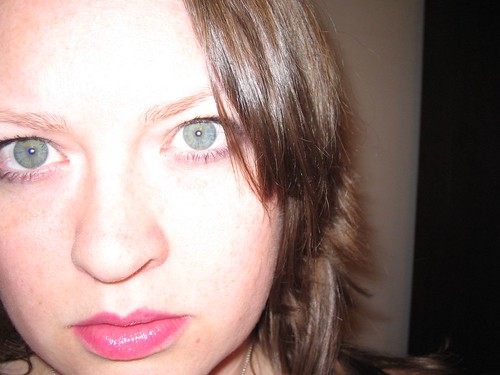I'm not the only person talking about the problem of poor presentation style and choices. A few weeks ago the Librarian In Black wrote about the problem of "ego centric conference sessions." She hits the nail on the head with this quote:
I want you to spark some ideas in me. I want you to make me think. Design a presentation with the thought: what things would someone need to know if he or she was going to do something similar? What are all the things to think about? What are some of the places to find more information about this? What are some of the resources I found most useful? I don't come to learn about the ins and outs of your library: I come to learn how to help mine.A Bewildered Academic offers a concise "How Not to Give a Conference Presentation." It's good advice and most importantly, it's user-centered. Think about your audience and try to make it easy for them to follow what you're presenting.
After all this complaining, I have to say that the teleconference I attended today through the College of DuPage Press's Library Learning Network was excellent. The panel members used their experiences as examples occasionally but framed their discussion broadly for the benefit of the entire audience. It helped that the topic was the impact of Google book search on libraries and library users in general, rather than a narrower subject. I especially liked the makeup of the panel: a Google representative, an academic library dean, an Economics and Social Policy, a publisher from an academic press, and an intellectual property attourney who represents libraries. The range of perspectives added depth to the conversation and illustrated the various constituancies interested in digitization and libraries. I will definitely be checking out more oof COD's teleconferences.










No comments:
Post a Comment